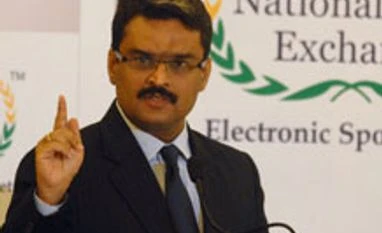The registrar of companies (RoC) has found the controversial paired trade contracts were first permitted by the board of the National Spot Exchange Ltd (NSEL) in 2009, illegally.
The contracts, which included two legs, the first settled on the third day (T+2) and the reverse a month later (T+25, T+36, etc), are at the centre of the NSEL crisis. “Many directors, including Jignesh Shah, Joseph Massey and Sreekant Javalgekar are holding common directorship in all Financial Technologies (FT) group companies. They cannot take shelter for ignorance about the state of affairs of the company,” the ROC said in an interim report to the ministry of corporate affairs (MCA). To an email, an NSEL spokesperson said, “We have not seen any interim report of RoC on NSEL. Hence, it would be unfair to comment on our part.”
On September 19, 2009, the NSEL introduced T+36 days forward contracts. “This action was ratified by the board on November 16, 2009, though it was not legally authorised to do so,” the RoC said. It added the permission to trade long-dated contracts “was never discussed” in any of the directors’ reports, though it “was required to do so.” The report has found violations of the Companies Act, including misrepresentation of facts. “The ministry may seek appropriate relief under the Act.” The report confirmed several findings of a forensic report by Grant Thornton, such as lack of warehouse management, inadequate monitoring of collaterals, poor risk management and allowing defaulting members to continue trading. The report slammed the board for “corporate governance failure. The report found several irregularities in the audit process of NSEL.
While the auditors did not “qualify” in their reports about inefficiency/slackness in physical verification of commodities, they also made some questionable comments in the reports “that the company did not have any inventory.”
Mukesh P Shah, who runs the firm that was the statutory auditor of NSEL, said, “If there was a failure, they should first confront us with these. Nobody has asked us anything. Without taking our position, how can they write something in the report? We cannot comment any further as we are bound by our agreement with the auditee (NSEL).” Shah's firm had withdrawn its audit report in September.
The contracts, which included two legs, the first settled on the third day (T+2) and the reverse a month later (T+25, T+36, etc), are at the centre of the NSEL crisis. “Many directors, including Jignesh Shah, Joseph Massey and Sreekant Javalgekar are holding common directorship in all Financial Technologies (FT) group companies. They cannot take shelter for ignorance about the state of affairs of the company,” the ROC said in an interim report to the ministry of corporate affairs (MCA). To an email, an NSEL spokesperson said, “We have not seen any interim report of RoC on NSEL. Hence, it would be unfair to comment on our part.”
On September 19, 2009, the NSEL introduced T+36 days forward contracts. “This action was ratified by the board on November 16, 2009, though it was not legally authorised to do so,” the RoC said. It added the permission to trade long-dated contracts “was never discussed” in any of the directors’ reports, though it “was required to do so.” The report has found violations of the Companies Act, including misrepresentation of facts. “The ministry may seek appropriate relief under the Act.” The report confirmed several findings of a forensic report by Grant Thornton, such as lack of warehouse management, inadequate monitoring of collaterals, poor risk management and allowing defaulting members to continue trading. The report slammed the board for “corporate governance failure. The report found several irregularities in the audit process of NSEL.
While the auditors did not “qualify” in their reports about inefficiency/slackness in physical verification of commodities, they also made some questionable comments in the reports “that the company did not have any inventory.”
Mukesh P Shah, who runs the firm that was the statutory auditor of NSEL, said, “If there was a failure, they should first confront us with these. Nobody has asked us anything. Without taking our position, how can they write something in the report? We cannot comment any further as we are bound by our agreement with the auditee (NSEL).” Shah's firm had withdrawn its audit report in September.
)